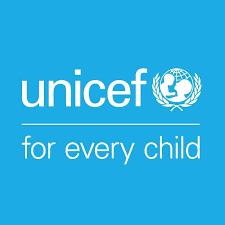
In Zimbabwe, 47%of the population — approximately 7.1 million people — are children under the age of 18.
These children face significant challenges, including vulnerability to climate change impacts such as drought and food insecurity.
According to Unicef, 4,8 million children live in poverty, with 1,6 million in extreme poverty.
Rural children remain the most disadvantaged, with limited access to health, education, water, sanitation, and social protection services.
At the same time, vulnerabilities are deepening in urban areas, where economic instability has left many families struggling to meet even the most basic needs.
In 2024, Zimbabwe experienced the worst drought in 40 years, exacerbating its fragility as it grappled with public health emergencies, including cholera, polio, and measles.
The El Niño-induced drought caused massive crop failure, severe food insecurity, and depletion of water resources.
An estimated 50 % of the population — 7,6 million people, including 3,5 million children — were affected.
- Shot in arm for Mash Central girl child
- TV personality Tsotsi nurtures raw talent
- Bankers set up advisory firm
- TV personality Tsotsi nurtures raw talent
Keep Reading
Reduced water levels at Lake Kariba also curtailed hydropower production, worsening already strained energy supplies and resulting in frequent power outages that disrupted livelihoods, education, and access to essential services.
In response, the government launched its first-ever El Niño Appeal, valued at US$3,9 billion, in May 2024.
This was followed by a United Nations and humanitarian partners’ Flash Appeal of US$443 million, which received only 32,4% funding.
Unicef mobilised US$10.5 million of its 2024 Humanitarian Appeal for Children (HAC) to support the cholera and drought responses.
This included reprogramming US$1 million from the Health Resilience Fund (HRF) to bolster cholera interventions across health, Water, Sanitation and Hygiene (WASH), and Social and Behaviour Change (SBC), enabling the management of more than 34 500 cholera cases.
Through its cluster leadership in Education, Nutrition, WASH, and Child Protection, and in partnership with Government and civil society, Unicef reached 2,5 million children with life-saving support and delivered critical messages to over 6,5 million people affected by climate-induced and public health emergencies.
Despite these challenges, important progress has been achieved. Birth registration initiatives provided thousands of children with a legal identity, unlocking access to healthcare and education.
Eight child-related laws were enacted, expanding protections and services for vulnerable children.
Solar-powered schools and digital learning pilots improved education access in remote areas, while strengthened immunisation and nutrition programmes supported child health and survival.
In November 2024, Zimbabwe hosted the Regional World Children’s Day celebrations, bringing together 7 000 children from seven countries to advocate for their rights — a powerful reminder of the strength of young voices in shaping their future.
Unicef Zimbabwe will intensify advocacy for increased public investments in child-focused social sectors, emphasising resource efficiency and accountability. Priorities include:
- Expanding social protection coverage and strengthening systems to safeguard the most vulnerable.
- Scaling up integrated health, HIV, nutrition, and Wash interventions, including efforts to reduce stunting and wasting and implement the Global Alliance Country Plan to end Aids in children.
- Supporting inclusive and digital learning opportunities, including the Learning Pioneer Initiative with the Primary and Secondary Education ministry.
- Advancing disability inclusion through a harmonised national framework to eliminate barriers and improve access to services.
- Strengthening youth participation through social innovation hubs, expansion of U-Report, and structured engagement in national, regional, and global platforms.









